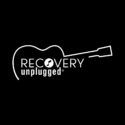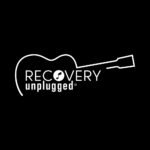Finding a Drug Court Program in Florida

For decades, Florida drug court programs have served as valuable resources for adult and juvenile non-violent drug offenders and their families. They allow eligible offenders to seek treatment for their drug abuse and reduce the legal penalty associated with their crimes.
Florida was the first state to implement drug courts in 1989.
As of December 2023, Florida operates 51 adult drug courts, 14 juvenile drug courts, 13 dependency drug courts, and 4 DUI courts.
In the years since Florida pioneered this proactive approach to drug offenses, studies have confirmed that the drug courts significantly reduce crime, provide better treatment outcomes, and produce better cost benefits than other strategies.[1]
What Is Florida’s Drug Court?
Florida’s drug court system is a means to reduce the number of individuals incarcerated and aid in rehabilitation for drug addiction.
According to Florida Statute 397.334, “Each county may fund a treatment-based drug court program under which persons in the justice system assessed with a substance abuse problem will be processed in such a manner as to appropriately address the severity of the identified substance abuse problem through treatment services tailored to the individual needs of the participant.”[2]
This means that each of these courts serves defendants on a case-by-case basis based on their infractions, family situation, recidivism status, and where they lie in the legal processing cycle. Components of Florida drug courts include:
- Integration of alcohol and other drug treatment services into justice system case processing
- A non-adversarial approach
- Early identification of eligible participants
- Continuum of services
- Alcohol and drug testing for abstinence
- Coordinated strategy for responses to participants’ compliance
- Ongoing judicial interaction
- Monitoring and evaluation for program effectiveness
- Interdisciplinary education
- Partnerships with relevant stakeholders
The “non-adversarial approach” component is key because penalties don’t necessarily have to lead to incarceration or other potentially life-altering consequences. Instead, it allows for working together cooperatively to reach the best resolution for everyone. Sometimes, this means reduced sentencing in conjunction with treatment; sometimes, it can mean treatment in lieu of incarceration.
Are All Florida Drug Courts the Same?
Florida has multiple drug court systems to help different people. These include:
- Juvenile Drug Court: This court is designed to help youth addiction by allowing individuals arrested or processed through the Juvenile Assessment Center to enter into drug addiction treatment while working toward their education.
- Adult Drug Pretrial Intervention Court: This court is designed for first- and second-time drug offenders to help them avoid a felony conviction by seeking treatment.
- Post-Adjudication Court: With the post-adjudication model, offenders must plead guilty to their charges, but their sentences are deferred or suspended while they participate in a drug court program.
- Family Dependency Treatment Court: This court helps parents overcome addiction to regain custody of their children.
- Marchman Act Drug Treatment Court: This court allows families to seek help for loved ones by petitioning the court to have loved ones assessed and treated for addiction.
- Veterans Treatment Court: This court helps veterans who are suffering from service-related mental illnesses, traumatic brain injury, or addiction.
How Can I Find a Florida Drug Court Program?
In many cases, if you are facing legal penalties for an eligible drug crime, your attorney will help you navigate the drug court options in your applicable county.
According to Florida Statute §948.08(6)(a), for eligibility for the Florida Drug Court program, the defendant must meet these requirements:
- Identified as having a substance abuse problem and amenable to treatment
- Charged with a nonviolent felony
- Never been charged with a crime involving violence, such as murder, sexual battery, robbery, carjacking, or home invasion
- Has two or fewer felony convictions for nonviolent offenses[3]
Each county’s drug court program also has its own set of requirements. At Recovery Unplugged, we work with drug court programs throughout South Florida, including Miami-Dade, Palm Beach, and Broward counties.
Need Help Navigating Florida Drug Court?
Recovery Unplugged offers comprehensive court liaison services to help you or your loved one navigate the Florida Drug Court System. We can help you avoid lengthy incarceration that can derail your life. Contact our admissions team today to get your second chance.
Frequently Asked Questions About Florida Drug Court
What Happens If You Miss a Drug Court Date?
Failing to show up for drug court could hurt your case. Keeping appointments is an important part of the treatment and assures the judge that you’re committed to change. Addiction is challenging, however, so some leniency is built into the program. Ultimately, it’s up to the court.
What Happens If a Drug Test Comes Back Positive?
The state knows that addiction is difficult to overcome, which is why drug courts were created in the first place. One positive drug test is a setback, but not necessarily cause to be removed from the program. Repeated offenses could lead to removal from the drug court system, however, and continuing in the criminal court process.
What Happens to Your Criminal Record When Drug Court Is Complete?
Completing the drug court process successfully can lead to the charges being dismissed or reduced, but this outcome may vary based on individual circumstances and the specific program’s guidelines. This process does not automatically impact previous charges or convictions on your record, which may require separate legal action for expungement or sealing.
We take our music-focused treatment for addiction very seriously, so we are going to hold our content to the same precision standards. Recovery Unplugged’s editorial process involves our editing safeguard and our ideals. Read our Editorial Process.
Sources
- [1] Drug courts. Florida Office of State Courts Administrator. (n.d.). Retrieved from https://www.flcourts.gov/Resources-Services/Office-of-Problem-Solving-Courts/Drug-Courts on 2023, August 22.
- [2] Statutes & constitution :view statutes : Online sunshine. (2023, August 23). Retrieved from http://www.leg.state.fl.us/Statutes./index.cfm?App_mode=Display_Statute&Search_String=&URL=0300-0399%2F0397%2FSections%2F0397.334.html#:~:text=(1)%20Each%20county%20may%20fund,services%20tailored%20to%20the%20individual on 2023, August 22.
- [3] Chapter 948 Section 08 – 2022 Florida statutes. (n.d.). Retrieved from https://m.flsenate.gov/statutes/948.08 on 2023, August 22.


